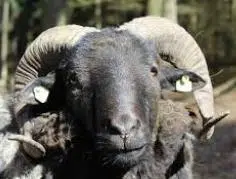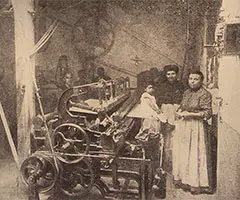 The first definition of the term ram mentioned in the dictionary of the Royal Spanish Academy ( RAE ) refers to the male specimen of the species Ovis orientalis aries , whose females are known as sheep .
The first definition of the term ram mentioned in the dictionary of the Royal Spanish Academy ( RAE ) refers to the male specimen of the species Ovis orientalis aries , whose females are known as sheep .
The ram, which is characterized by having a body covered in wool , measures about eighty centimeters at the withers and has horns . Generally the ram is a male that is used for reproduction and which, therefore, is not subjected to castration.
Before they are two years old, the males of this species are called sheep . If the animal is castrated, it becomes known as a capon .
In some countries , people who do not join a strike decided by their colleagues or a union are called rams. Carnero, in this framework, is synonymous with scab .
Rams, therefore, are strikebreakers . Many times these are individuals who receive money from employers so that they do not join the strike and thus diminish the importance or strength of the protest. Being accused of being a ram implies an offense: it is linked to the lack of courage to make a claim and solidarity with the rest of the workers and also refers to the absence of scruples.
The well-known American writer Jack London, author of works such as The Call of the Wild and White Fang , made public his opinion about the figure of the ram (or scab) in a text that could not be more direct. In a few sentences he said things like the following: God created him with a horrible substance left over from the most disgusting species; Instead of a heart, the scab has a tumor of rotten beginnings; his brain is full of water; he is lacking in courage even in comparison with Judas Iscariot himself; nothing can be below a scab.
 Regarding the origin of the term ram in this sense, it is necessary to start with that of "esquirol", which arose in Manlleu, a town in Barcelona, in the mid-19th century. At that time, the textile industry still worked by order, that is, manufacturers placed orders with weavers, who did their work in their own homes.
Regarding the origin of the term ram in this sense, it is necessary to start with that of "esquirol", which arose in Manlleu, a town in Barcelona, in the mid-19th century. At that time, the textile industry still worked by order, that is, manufacturers placed orders with weavers, who did their work in their own homes.
Little by little, the first factories appeared, hand in hand with salaried work, but this meant an alteration in the weavers' routine, and many joined in important strikes. This situation lasted until the beginning of the 20th century, and the manufacturers made the decision to summon workers from closer towns, especially from l'Esquirol , the name by which Santa María de Corcó is known. This resulted in people who agreed to work despite the strike receiving the nickname "scabs", which quickly spread throughout the country.
The term "carnero", on the other hand, is used in Latin America, where it is much more common than the previous one. Its origin is found in a popular saying that speaks of an "enchanted ram" that went to look for wool and "came back shorn." It is important to highlight that these people do not measure the consequences of their decisions, which is why their ambitions lead them to harm themselves and their colleagues; The firebreakers do not reach the position of those who convince them to sell themselves, and thus they remain in a limbo where principles do not exist and where no one loves or respects them anymore.
Carnero, finally, is a fairly common surname in Spanish-speaking nations . The singer María del Mar Rodríguez Carnero (known as Lamari ), the poet Guillermo Carnero , the politician Jesús Julio Carnero and the footballer Raúl García Carnero share this name.
